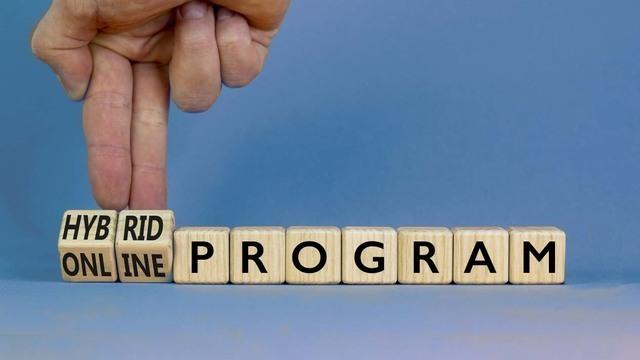You couldn't pick a better country to do sports law in than the United States. With our cultural glorification of all things athletic, it's almost impossible to go a day here without seeing a reference to American sports lore. Despite their demigod status here, though, sports stars are still remarkably human, and therefore just as likely as us commoners to land themselves in legal trouble.
Enter sports lawyers —they help these big-name athletes navigate the tedious intricacies of the judicial system for some pretty big bucks. But even though every sports lawyer starts from relatively humble beginnings as a lowly L1 student, the real secret between the no-namers and the big shots are where they start their sports law journey.
That's why we're here to talk all about the qualities you should look for in a good sports law school. Anyone who's faced an LSAT review book will tell you that not all law school admissions boards are created equal —or law schools, for that matter. That's why you'll need to look for certain characteristics if you're specifically interested in practicing sports law.
And with that being said, let's kick it off!
4 Qualities to Look for in a Sports Law School
No, good odds of getting admitted is not the top quality you should look for in a law school (aim a little higher than that!); there are few key attributes you might not have considered when thinking about where you want to go to sports law school. Not to worry, though, as we've put together a short list of traits every school you're applying to should have. We also explore some of our readers' most frequently asked questions about sports law later on, so be sure to stick around for that, too.
Location
Interestingly, a sports law school's location is perhaps one of the most important things to consider when browsing programs. Sports lawyers are far more likely to find work where there's plenty of work to be done, making New York and California the two best states in the country to go to sports law school.
You don't even necessarily have to go to the best sports law school here to get your foot in the door. Even choosing a lower-tier sports law school in the same area is better than going to a more highly ranked school in, let's say, the middle of Nebraska. If you want lucrative work opportunities to present themselves, you need to be where the opportunities are.
But don't bite your nails if you get into a great program elsewhere in the country. Tulane University has one of the best sports law schools in the entire country, even though it's in New Orleans. However, it has a long history of successfully placing its graduates all over the country and sports law student competitions that broaden students' career opportunities and general understanding of sports law.
Extracurriculars With Networking Opportunities
Following this logic, a great sports law program will give you plenty of chances to network with other professionals in the industry and get your career going. Whether the school in question organizes lots of sports law conferences or holds seminars with some of the biggest names in sports, it's wise to choose a school that attracts the industry's movers and shakers.
Some schools might even collaborate with local sports teams to bring classroom concepts to life. Take the University of Miami School of Law's Entertainment and Sports Law Society, for example —they partner with the Miami Dolphins to present a Legal Learning Series in an interactive, field trip-esque fashion. Hey, you're never too old to hop on a bus and learn something cool with your classmates!
Just like during your undergrad, you can't go wrong by joining school organizations and connecting with peers and professors alike.
Clinics and Classes and Journals —Oh, My!
These networking opportunities vary widely from school to school, though, so you'll have to do your due diligence when it comes to figuring out what's available near the schools you're looking at. Obviously, schools in hotspots like Los Angeles or New York will have plenty to choose from. The UCLA School of Law, for instance, offers three entertainment law clinics throughout the school year, while other schools have more opportunities where you can gain some practical working experience, like Penn State Law.
Sports law journals are also still relatively uncommon, even though they've exploded in popularity over the past decade. However, their still-rare status makes them stand out on your resume, so see if any of the schools you're applying to have a journal you could write for. Working for a legal journal is also a great way to flesh out your understanding of legal theory, so there's no real downside to that kind of work —especially while you're still in law school.
Employment Rates
Sure, a sports law school can have the most picturesque location and glitziest conferences, but still be a flop in the employment department. This is why you need to take a look at how many of these schools' graduates are finding work after school. If a school that looks great on paper doesn't have the placement numbers to match, you might want to continue your search elsewhere.
Some websites, like U.S. News, calculate these rankings according to two statistics: 1) the number of students employed immediately after graduation; and 2) the number of students employed ten months after graduation. Both are important in terms of figuring out whether the school will help you find work —but how?
The first statistic clues you in to what kind of employment opportunities are available while you're still in school. These include summer internships or post-grad job offers you receive as a student. However, the second statistic is more telling in terms of how much weight your J.D. will pull; if a school's numbers for the second statistics are relatively low, this shows that the school's reputation might not be so strong. Either that, or they could have a small alumni network or sparse career services center.
No matter what the culprit is, you should always aim for schools with favorable employment rates, robust alumni networks, and strong career services centers that provide both current and past students with the resources they need to succeed in the legal industry.
Frequently Asked Questions About Sports Law
Before we send you off, let's address some of the most frequently asked questions when it comes to sports law schools.
What Do Sports Lawyers Do?
Think of them as courtroom referees, if you will. All jokes aside, though, sports law is pretty versatile; many help individual players, teams, or even coaching staff make sense of some of the most complicated (and expensive) contracts out there. Essentially, sports lawyers handle all the behind-the-scenes paperwork for professional athletes and their staff.
They also serve as spokespeople for athletes, too, coordinating public relations, philanthropic ventures, and damage control for any nasty scandals that might arise in the seedy underbelly of the sports world. This means sports lawyers are no strangers to fielding harassment charges, or any other criminal charges sports stars might face throughout their career.
Do Sports Lawyers Really Have to Go to Law School?
Well, yes; you wouldn't ask a ham radio hobbyist to build you a tri-state weather doppler, after all. Just as it is for any attorney, you'll start your legal career in college, where you don't have to major in anything special to prepare for law school, in particular. If you are considering sports law, though, then we'd recommend business, history, or even sports medicine to familiarize yourself with all the happenings of the athletic industry.
Do Sports Lawyers and Sports Agents Do the Same Thing?
Nope. Sports agents are prohibited from giving their clients any legal advice, instead negotiating the contracts and salaries that sports lawyers may later have to tease out in court. They mainly handle employment and endorsement contracts, and let sports lawyers worry about any contract-related problems or breaches of contract later on.
What Kind of Sports Law Is There?
Like we mentioned earlier, sports contracts make up a hefty bulk of the work that's available in the sports law industry. However, sports lawyers also deal with intellectual property rights, morality clauses (i.e., contractual clauses that make it legal to withhold an athlete's pay if they behave poorly in public), compensation claims, settlements, merchandising, franchising, and even royalties.
No matter how you slice it, there's going to be a lot of fine print to read as a sports lawyer!
Do Sports Lawyers Make Good Money?
Unless you're working with household names, you're looking at an average salary of $90,000 or so. Not bad as far as salaries go, sure, but maybe not the number you were hoping for a sports lawyer.
Entry-level sports lawyers can expect to make around $65,000, while those in the upper percentiles are bringing in nearly $150,000 a year. This doesn't include the exceptions that are making upwards of seven figures a year, so keep that in mind when doing the mathematics in your head. Also take student loans into account when deciding on a law school; the average tuition for sports law school is almost $40,000, so multiply that by three and you're looking at the number you'll likely be whittling down for the rest of your life.

One Last Word on Sports Law Schools
The road between you and managing some of the biggest names in sports is, well, of questionable length, but definitely attainable. The first and most important step you can take to getting there, though, is to choose a good sports law school that has great extracurricular organizations, a strong alumni network, and solid post-graduation employment numbers. We hope you've learned something new that you can take along on your journey with you, and as always, thanks for reading!









